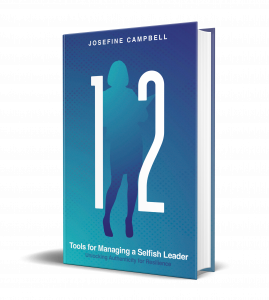
Share This Post
Darwin wrote about the “survival of the fittest,” and he didn’t mean the strongest survive, but the individuals and species that are most adaptable, flexible, and resilient: The mentally agile. Writing on the history of evolution, Yuval Noah Harari points out in his best-selling book Sapiens that our ability to work together in large groups and create togetherness through common ideas is the quality that has made us the dominant species on the planet. So, in this sense, being fit or agile is being collaborative—even when it gets tough.
In this article you’ll get 3 areas to focus on for staying mentally agile. And if you prefer reading in Danish then access the Danish version here.
The agile can lead, be led, and collaborate
The Personal Paradox
It’s interesting to note that the research he points to shows that the brain functions that differentiate us—Homo sapiens—from other mammals have developed in direct proportion to the size of the groups we live in. The people who are most agile are the ones who can lead, be led, and collaborate. It demands an understanding of what takes place inside oneself and others, and especially inside one’s adversaries. It is not the aggressive, shouting pack-leader who can intimidate others who is the most fit. It’s the person who can understand both others, and himself well enough to rise above himself and not to take things personally, but to see the issues from other people’s perspectives. Being agile is not just about you. It also has to do with how you function in collaboration with other people.
Using our collaborative skills, we humans have not only survived adverse conditions but also become the dominant species on the planet even though we are not the largest or the strongest. Good organization overpowers muscular strength. Imagine a gigantic, strong gorilla in conflict with a hundred lemurs. Which side has the best chance of winning? The answer depends on many factors. If the lemurs can cooperate efficiently and marshal themselves in formations surrounding the gorilla, they may be able to outmaneuver it. But if each of them worries only about saving its own skin and they run in separate directions, some will survive while others will be killed.
Would you like the newest knowledge and inspiration sent directly to you?
Then subscribe to our monthly newsletter
3 areas to focus on for staying mentally agile
It is part and parcel of being human that we look for company with other people, and this is a basic need for our efficiency and functioning. It allows us to lead, be led, and work with others. Therefor you’ll get 3 areas to focus on:
1. Understand the Basics. Recognize that survival of the fittest means being adaptable, flexible, and resilient—not just physically strong. In my book, Power Barometer, I describe it is being mentally agile. It is the most desirable state of mind when performing.
2. Foster Collaborative Skills. Learn to see issues from others’ perspectives, including your adversaries. This enhances your ability to work effectively with diverse groups. One great way to do this is to imagine who you’re about to collaborate with and try to put yourself in the shoes of every person. How do they see this issue?
3. Enhance Self-Awareness. Regularly assess your own thoughts, feelings, and behaviors. Understanding yourself better helps you navigate complex social dynamics. You can e.g., start out with knowing your top three values and when done so you also know your greatest triggers for getting under pressure. You can read more about finding your top values here.
Collaboration is the key to human progress in our evolution as a species. It also provides the answer to the survival of our species.
If you want to be more mentally agile and leap performance in your team, maybe you should consider team development with us. Helping you to deal with the real challenges. Reach out at, hello@josefinecampbell.com, +45 26361199 or take a close look at our webisite here.
And remember that we help people in multinational companies to handle challenges in a meaningful way and take business to the next level. If you would like to be updated with new articles and videos, sign up for our mailing list. Your mail is not shared with anyone and there are advantages to being on the list e.g., getting the first chapter of my book, Power Barometer – How to Manage Personal Energy for Business Success.
References
Harari, Yuval Noah (2015),Sapiens.
Preston & de Waal (2003), Empathy: Its ultimate and proximate bases











